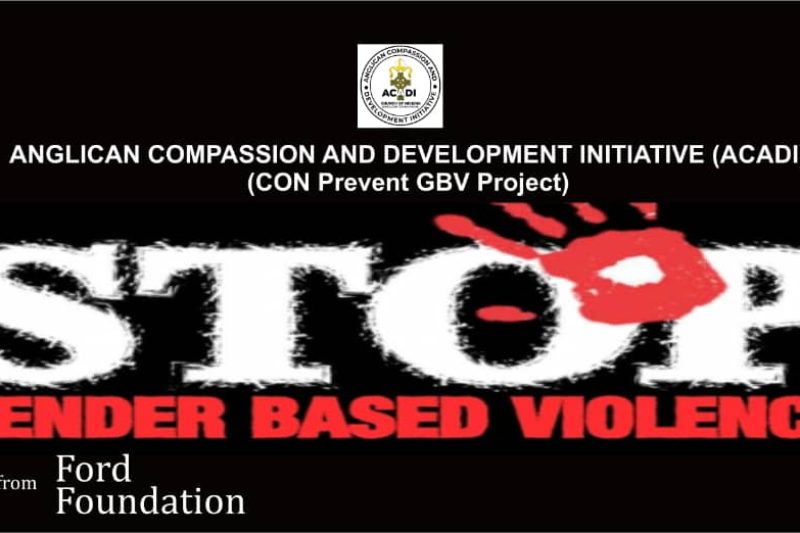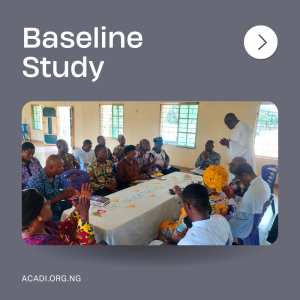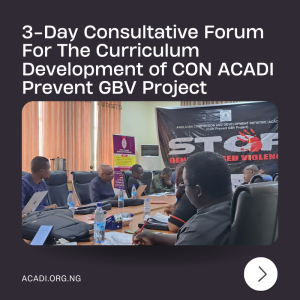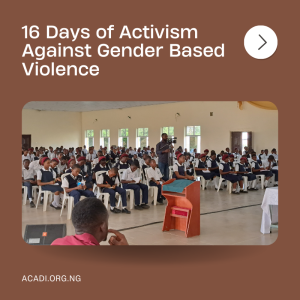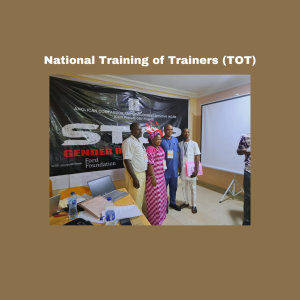with support from ford foundation
Church of Nigeria Transformation Response to Gender-Based Violence Prevention Initiative (CON Prevent GBV Project)
There has always been a compelling need for faith leaders at all levels to play a leadership role in addressing gender-based violence among the faith community. Faith leaders are duty bound to provide the necessary leadership amongst their congregations in particular and the general populace in general to vigorously lead campaigns and awareness creation that will help reduce the incidence of GBV amongst their members and communities.
Christianity has always been known to teach non-violence. In His teachings Jesus enjoined his followers to shun violence and turn the other cheek when necessary. It is well known that GBV has been perpetuated by cultural /traditional and religious beliefs that are quite destructive and tend to make women and girls vulnerable to all forms of abuse and violence. These beliefs have been so ingrained in societal attitudes and there is need to begin to root them out systematically leaning heavily on the influence of FBO’s in the community through their leaders. However, this does not mean that men are immune from violence by womenfolk.
It is therefore important to work with and engage major players in the faith space to lead the charge in providing the necessary leadership in the bid to drastically reduce and eradicate GBVs. Religious leaders at all levels will help influence changes in norm, and help support provision for survivors in addition to making inputs into the legislative process especially when the laws are discriminatory or encourage dominance of a particular gender. More than at any other time, speaking out by faith leaders can play a transformative role in mobilizing the faith community in tackling the root causes of gender inequality and GBV.
In tackling gender injustice which affects many women and girls within its sphere of influence in Nigeria, the Church of Nigeria [CON] through Anglican Compassion and Development Initiative [ACADI], with support from Ford Foundation {FF] have embarked on a transformational response to gender-based violence GBV with the object to prevent and reduce its occurrence within the Church of Nigeria. This will involve use of relevant theological materials, developing a manual/curricula and other IEC materials for creating awareness, encourage conversations and teach leaders within the church to achieve the desired behavioral change ultimately leading to the desired goal of preventing and reducing GBVs.
GBV is a leading cause of death, illnesses and disabilities of women at all ages. It is known that more than one in three women is suffering from intimate partner violence. Anglican Compassion and Development Initiative in collaboration with Church of Nigeria [Anglican Communion] has embarked on prevention interventions to reduce the incidences of Gender Based Violence [GBV]. There are also associated issues of access to social justice, equity, security and economic development among members of the church and their immediate communities who have been victims or survivors.
GBV is described as violence directed against a person because of their gender and is one of the most prevalent violations of human rights globally. GBV incidences cut across social strata, economic or national boundaries and undermines the health, dignity, security and autonomy of victims or survivors. The Church as an institution is envisioned as an organization with the requisite capacity and messages that could play crucial and pivotal roles in prevention, intervention and healing from all forms of Gender Based Violence.
The CON plans to deploy holistic interventions to inform, educate and mobilize the faith community to work towards the reduction of GBV among members of CON and their communities. Leadership and laity in the various Parishes and Dioceses will be primed to take strategic steps towards achieving zero tolerance to GBV with leverage on its nationwide network and community-based structures to influence other Christian organizations to key into its objectives. It is well documented that in working with faith-based actors, they put to use their unique spiritual capital in beneficial ways to highlight the problem and engage in the development of acceptable interventions in preventing GBV and thus help reduce violence against women/girls [VAW/G] without necessarily neglecting violence perpetuated against men and boys. It should be noted that GBV & SGBV are long standing societal challenges, complex and of a global nature that require the attention from leaders from various spheres of society especially our faith leaders. This will ensure adequate victim of violence [VOV] support, deal with perpetrators and put in place adequate prevention strategies. In developing and putting in place prevention strategies, there is need not to neglect survivors of violence [SOV] who must be adequately catered for and ensure they get justice from the society.
Contact Details
- 24, Douala Street, Wuse, Zone 5, Abuja
- +2349133638838
- [email protected]

